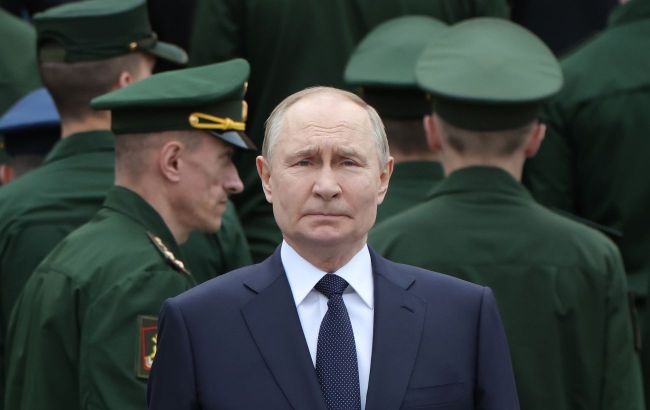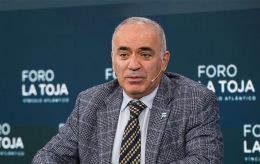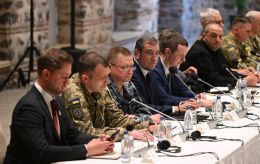Russia begins first phase of preparation for possible war with NATO - ISW
 Russian President Vladimir Putin (photo: Getty Images)
Russian President Vladimir Putin (photo: Getty Images)
Russia has intensified an information and psychological campaign that may be part of preparations for a potential war with NATO. The Russians may stage a false-flag provocation, according to an analytical report by the Institute for the Study of War (ISW).
Russia accuses the West
Analysts cite a statement by Russia's Foreign Intelligence Service, which claimed that the United Kingdom allegedly plans an attack by a group of pro-Ukrainian Russians on a Ukrainian Navy ship or a foreign civilian vessel in a European port.
According to the Russian intelligence service, the saboteurs would claim they acted on orders from Moscow, and the United Kingdom allegedly plans to equip the group with Chinese-made underwater equipment to accuse China of supporting Russia's aggression against Ukraine.
ISW emphasized that this statement repeats similar allegations about illegal actions directed against European states, such as Poland, Moldova, and Serbia. In recent weeks, such statements have been appearing more frequently, forming a new, coordinated pattern of activity.
Phase 0 and the increase in Russian activity
"This pattern of organized activity suggests that Russia has entered the first phase of preparations — Phase 0 — to move to a higher level of war than the one Russia is currently engaged in, such as a future NATO-Russia war," the report says.
The analysts further note that since the autumn of 2025, there has been a noticeable increase in Russian activity, particularly violations of NATO countries' airspace by drones.
However, at this time, ISW does not conclude whether the Kremlin has decided to initiate a possible higher-level war or on the timeframe in which this might occur.
The purpose of false flags and the Kremlin's long-term plans
Analysts note that Russia is implementing long-term strategic plans that may serve as part of preparations for a future conflict with NATO, including the restructuring of military districts on the western border and the development of military bases on the border with Finland.
At the same time, ISW does not record any signs that Moscow is actively preparing for an immediate confrontation with NATO at the present moment.
The report emphasizes that through statements about false flags, Moscow seeks to sow fear among Europeans, undermine NATO's unity, and reduce support for Ukraine.
Within Russia, such statements aim to create the image of a threatening West and prepare public opinion for a potential escalation of confrontation with the West.
Recently, the EU Commissioner for Defense, Andrius Kubilius, stated that German intelligence has evidence of discussions in the Kremlin about a possible plan to attack NATO.
At the same time, Russian President Vladimir Putin calls the idea of a plan to attack NATO "nonsense," which "is impossible to believe."
President of Russia also stated that if Europe truly believes in such Russian plans, then the leaders of European countries lack competence.

